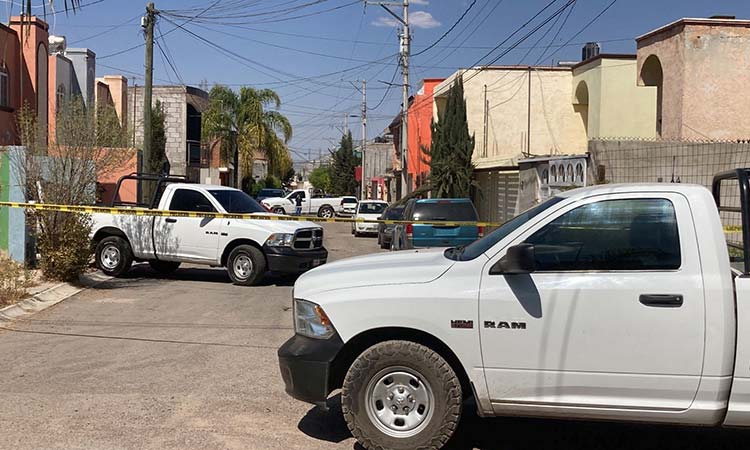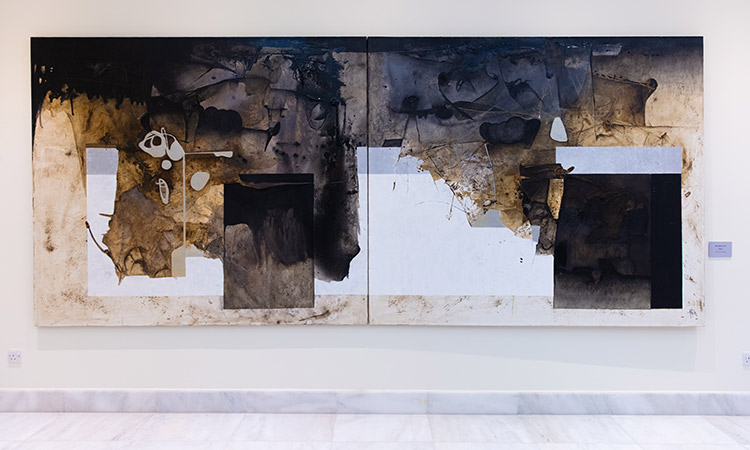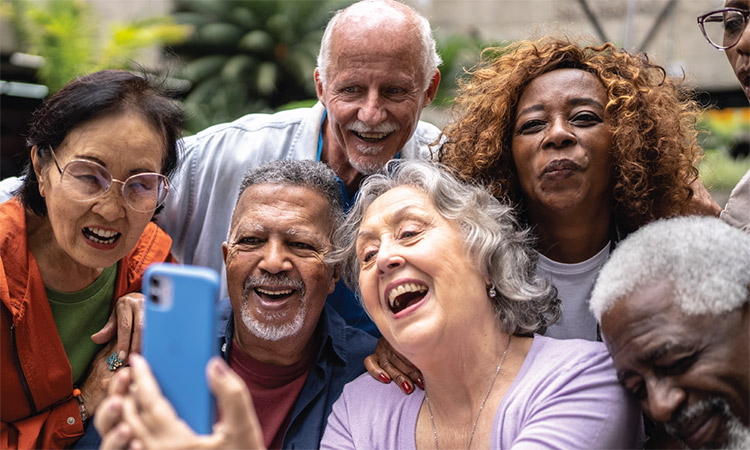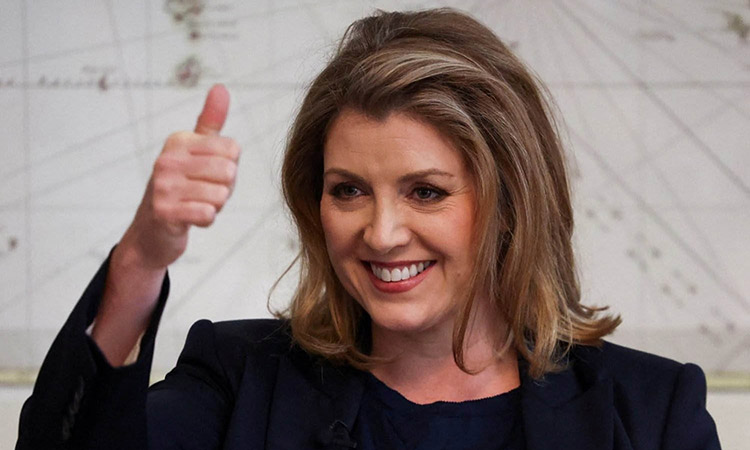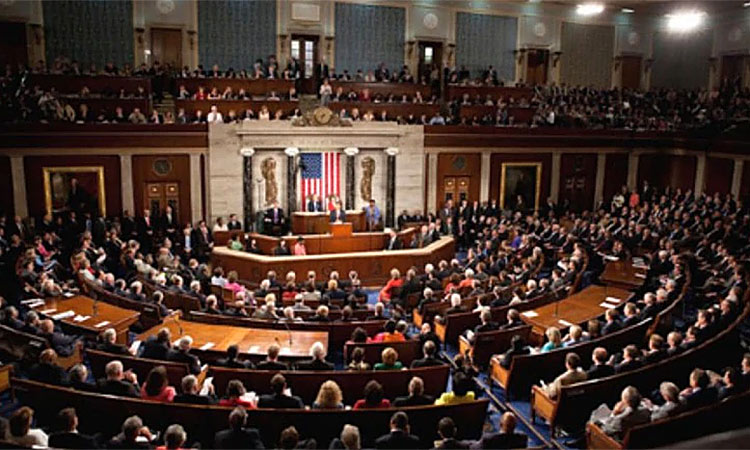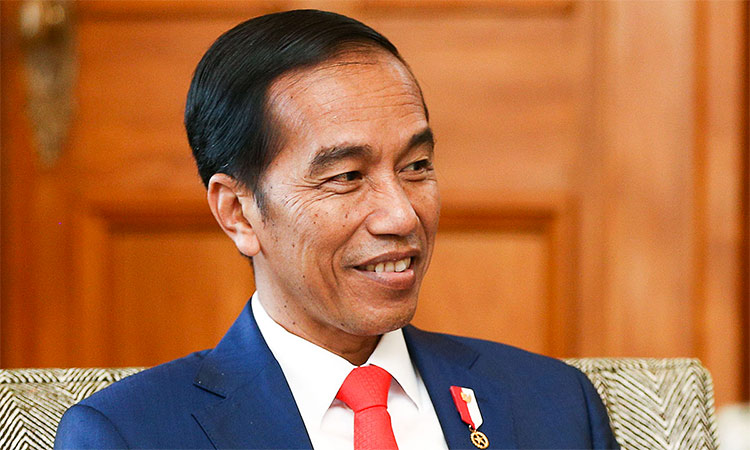Mexico’s journalists killings a big threat to democracy
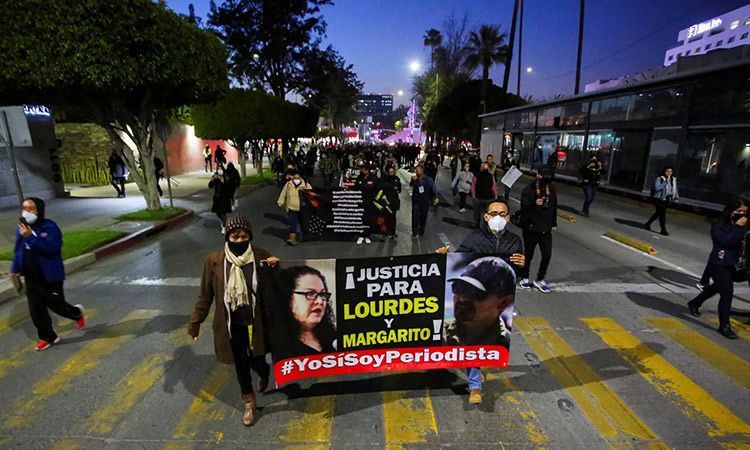
Journalists marching toward the office of the attorney general in Tijuana with a sign demanding justice. File/Reuters
Jean Guerrero, Tribune News Service
Democracy in Mexico depends on the work of Mexican journalists, and they’re being murdered with impunity.
In the first month of this year alone, four were killed. Just this Monday, 55-year-old lawyer and journalist Roberto Toledo was gunned down in the western state of Michoacán. He had reported on local government corruption.
In the border city of Tijuana, two journalists were fatally shot: 49-year-old crime photojournalist Margarito Martínez and 66-year-old radio and TV host Lourdes Maldonado. Both were role models for the region’s next generation of reporters.
Maldonado particularly inspired Mexican women whose mothers and grandmothers embraced a view of femininity revolving around marriage and motherhood. She had neither husband nor children and lived unabashedly for her career and community.
Four days before her death, she won a nine-year labor dispute with former Baja California Gov. Jaime Bonilla. She had sued him for back wages and called him “corrupt.” Many of her colleagues have said they believe her killing was politically motivated — either ordered by Bonilla or by someone hoping to smear him.
“This creates the worry that they’re trying to attack political figures using journalists’ lives,” said Sonia de Anda, who leads the Tijuana journalist collective #YoSíSoyPeriodista (#IAmAJournalist).
Maldonado knew she was in danger. In 2019, she asked President Andrés Manuel López Obrador for help in her dispute with Bonilla, a member of his party. She told him at a press conference: “I fear for my life.” Bonilla denies a role in her death, and López Obrador urged people not to jump to conclusions.
Nevertheless, her killing reflects a pattern. Earlier in the month, on Jan. 10, Mexican journalist José Luis Gamboa was stabbed to death in the port city of Veracruz. He had recently accused leading politicians of collusion with drug cartels.
These four executions highlight the abject failure of the Mexican government’s program that is supposed to protect journalists and provide bodyguards and other security for those who face threats. Both Martínez and Toledo applied for protections that never came. Maldonado got some help, including a panic button and police patrols of her home, but was killed anyway.
Mexico is now the world’s deadliest country for journalists. Despite its constitution guaranteeing a free press, and a special prosecutor’s office focusing on crimes against the press, about 150 journalists have been killed there since 2000, according to Article 19, a press freedom organisation. Federal protocols for investigating crimes against journalists — which require digging into their work as a main line of investigation — are often ignored.
The problem persists because most of the murders go unpunished. “Impunity kills,” Tijuana journalist Gabriela Martínez told me. “If we allow these cases to remain in injustice, the message it sends is that killing journalists is a good option.”
This isn’t just Mexico’s problem. US firearms smuggled into Mexico have been used to execute journalists as US gun makers defy Mexico’s strict gun laws by catering products to that market.
And the executions come amid global attacks on press freedoms. Reporters Without Borders found journalism is “totally blocked or seriously impeded in 73 countries and constrained in 59 others.”
During recent nationwide protests, Mexican journalists demanded justice. López Obrador’s administration is reviewing the failing protection program for journalists, and Baja California’s current governor, Marina del Pilar Ávila, is seeking harsher penalties for crimes against the press.
Meanwhile, many journalists are taking their own precautions, including traveling in groups and staying in close communication. “It’s important for us to take care of each other, because it’s clear that the government can’t take care of us,” Alejandro Arturo Villa, a Tijuana journalist for the weekly Zeta, told me.
Without their work, Mexico’s democracy can’t survive. Mexican journalists illuminate the needs of the country’s most vulnerable, hold officials accountable, and expose crime and corruption.
But they work in a state of terror and trauma. “For the first time, I was afraid of going into the street and doing my job,” Tijuana journalist Manuel Ayala told me following the killing of his friend and mentor Margarito Martínez, the crime photojournalist.
Martínez had requested state protection — in vain — after a blogger falsely accused him of running a popular Facebook page that exposes drug traffickers. His colleagues suspect the false accusation led to his death. They fear unscrupulous social media influencers posing as journalists are a growing threat to the lives of real journalists.
And it’s hard to be a real journalist in Mexico. Many earn less than the equivalent of $500 a month — without health insurance or access to protective gear. The precarity adds to their vulnerability.
Of course, you would know none of this listening to President López Obrador’s Trump-style bullying of the press, which he caricatures as corrupt and lying elites. He even holds weekly “Who’s Who in This Week’s Lies” sessions that single out journalists and media outlets for criticizing him. His rhetorical attacks fuel antipathy toward journalists.
“When the head of state stigmatizes the press, it gives a free pass to other people to attack the press,” said Paula Saucedo, protection and defense program officer at Article 19.
It also stokes conditions in which influencers who attack the press, such as the blogger who endangered Martínez, can thrive.
Natalie Southwick, program coordinator for Latin America and the Caribbean at the Committee to Protect Journalists, said Mexico’s president is not prioritizing press freedom or journalist safety.
“His entire administration has just really made it clear that this is not a concern for them and not something they’re putting energy or resources into,” she told me. “That alone sends a message to individuals who want to do harm to journalists: that they’re not necessarily going to face any consequences.”
López Obrador must stop his continuing war on the press, and instead make safety a priority, pursuing justice for the victims and enforcing laws that protect journalists. The interlinked fates of our democracies depend on their survival.
